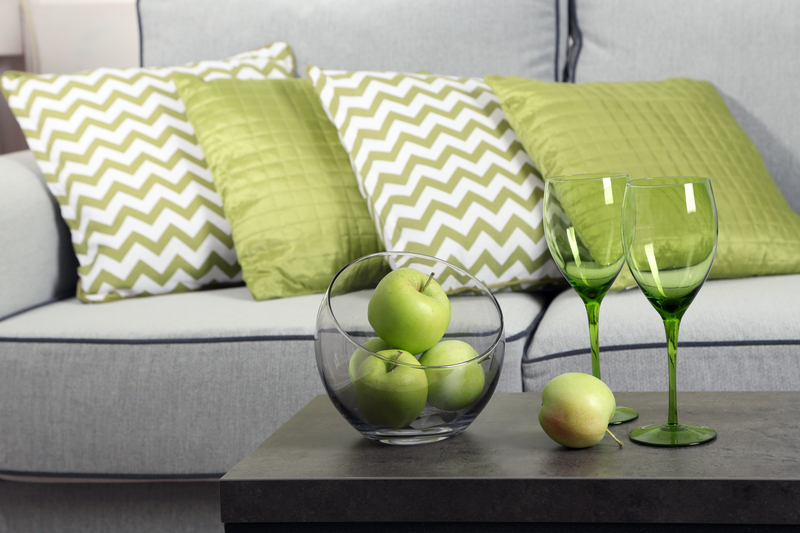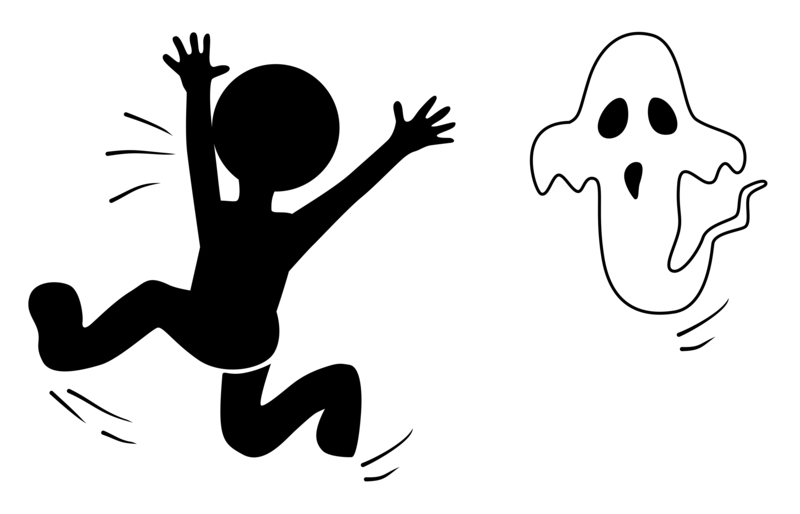Why You Should Rethink Moving Your Piano Alone
Posted on 26/05/2025
Why You Should Rethink Moving Your Piano Alone
Pianos are more than just musical masterpieces--they are intricate, valuable, and sometimes sentimental treasures. So, if you're planning a move, whether to a new home, rehearsal space, or performance venue, you might question: Should I move my piano myself? While it can be tempting to save on costs and handle the task solo or with a few friends, moving a piano by yourself is a risky gamble. In this comprehensive guide, we explore why you should rethink moving your piano alone, the risks involved, and the benefits of hiring professional piano movers.
The Unique Challenges of Piano Moving
At first glance, moving a piano may seem like simply shifting a large piece of furniture. However, pianos are exceptionally delicate musical instruments with unique internal components, sensitive mechanisms, and often considerable size and weight.
- Upright pianos can weigh between 300 and 500 pounds.
- Grand pianos can tip the scale at 1,200 pounds or more.
- Both have intricate mechanisms with over 10,000 moving parts.
The sheer mass combined with their delicate internal construction makes piano moving a complex and specialized process. As such, attempting to move your piano alone could be a costly mistake.
Hidden Dangers When Moving a Piano Yourself
When pondering whether you can move the piano without help, it's crucial to recognize the many risks and potential consequences involved:
- High Risk of Injury: Pianos are heavy and awkwardly shaped. Trying to move one without proper equipment and technique can result in serious injuries--back strains, crushed fingers, and even broken bones. According to safety statistics, one of the most common household moving injuries is caused by lifting overly heavy objects.
- Possibility of Property Damage: Navigating tight doorways, stairs, and turns adds layers of difficulty to piano moving. A single misstep can result in damage to walls, floors, stairs, or the piano itself. A scratched hardwood floor or a dinged wall can be expensive to repair.
- Risk of Damaging the Piano: Pianos are intricately crafted and sensitive to shifts. Dropping, bumping, or improperly tilting the instrument can result in movement of internal parts, misalignment of strings, broken keys, or exterior scratches and dents. In severe cases, the piano may be rendered unplayable and require extensive repair.
- Lack of Proper Equipment: Professional piano movers use specialized dollies, straps, padding, and ramps that most people don't have at home. Without this equipment, balancing, maneuvering, and protecting a piano is nearly impossible.
- Insurance Coverage Gaps: Moving companies carry insurance to cover accidental damages. If you damage the piano (or injure yourself or others) during a DIY move, homeowners insurance may not cover all costs.

Why Pianos Can't Be Treated Like Other Furniture
Unlike standard pieces of furniture, pianos are musical instruments with sensitive mechanics and tuning. This means that any jolt, tilt, or rapid temperature/humidity changes during a move can have lasting consequences.
- String tension: The average piano holds more than 18 tons of string tension--just a sudden shift or strong impact can unbalance the entire instrument.
- Wood and finish: The high-quality woods and finishes can scratch, crack, or warp if exposed to rough handling or weather changes.
- Internal action: The action comprises thousands of tiny pieces; a single misalignment can affect playability and sound.
In short, treating a piano as a simple piece of furniture is a mistake that many regret. Safeguarding its musical integrity and structural beauty requires specialized care and expertise.
The Hidden Costs of "Saving Money" on Piano Moving
A primary reason people attempt to relocate their own piano is to save money. However, the up-front savings can lead to far greater expenses in the long run. Here's why:
- Potential repair bills: Even small bumps can cause costly repairs to the instrument's action, pedals, or exterior finish, which can add up to hundreds or even thousands of dollars.
- Tuning and regulation: Any movement can cause the piano to go out of tune. In extreme cases, the internal regulation may need professional work after a jostling move.
- Medical expenses: An unexpected injury during a move can leave you with costly doctor or physiotherapy bills that cancel out any attempted savings.
- Insurance premiums: Damage to your home or another person's property during a DIY move could result in hiking your insurance premiums.
Ironically, trying to cut costs by moving your piano yourself often backfires--resulting in higher bills, lost time, and unnecessary stress.
Professional Piano Movers: What They Offer
Given the risks above, it's easy to see why professional piano movers exist as a specialized service. Here's a closer look at what they provide and why their expertise is worth the investment:
1. Specialized Equipment and Techniques
Expert piano movers arrive equipped with heavy-duty dollies, moving blankets, padding, ramps, skid boards, and lifting straps. These tools are specially designed to support the piano's unique shape and weight distribution. Professionals also use tried-and-true methods for securing, disassembling (when needed), carefully navigating stairs and corners, and protecting both the piano and the property.
- Protective wrapping keeps the surface free of scratches.
- Custom dollies ensure safe rolling and turning, even on uneven surfaces.
- Lift systems prevent excessive jostling and awkward lifting.
2. Experience and Training
Professional piano movers undergo extensive hands-on training to learn how to disassemble, pack, transport, and reassemble all types of pianos (upright, baby grand, concert grand, digital, etc.). This level of experience cannot be replicated by a one-time DIY effort.
3. Insurance and Peace of Mind
Reliable moving companies are licensed and insured, which means that in the rare case of an accident, the financial responsibility doesn't fall on you. This coverage also gives peace of mind, as you know your cherished instrument is in good hands.
4. Time and Effort Savings
Moving a piano is not a quick task. By delegating to professionals, your time can be better spent preparing for your move, organizing your new space, or simply relaxing. The process will be faster, safer, and less stressful overall.
5. Protecting the Value and Enjoyment of Your Piano
Many pianos hold substantial sentimental or financial value. Retaining their beauty and sound quality through careful moving ensures years of musical enjoyment to come. Don't risk diminishing your instrument's worth with a careless DIY approach.
Common Mistakes Made During DIY Piano Moves
If you're still considering taking on the task by yourself, it's wise to be aware of these frequent errors made by untrained movers:
- Attempting to carry the piano without enough people or muscle power.
- Not removing the legs or pedal lyre (on grand pianos), risking breakage.
- Failing to secure the keyboard lid, resulting in broken keys or scratches.
- Skipping the use of proper padding and sliders to protect floors and finishes.
- Misjudging the weight/center of gravity and causing tip-overs.
- Trying to move through narrow hallways or up/down stairs without the right path cleared and measured.
- Using inadequate vehicles--like open bed trucks without tie-downs--which can be disastrous for both the piano and your safety on the road.
Each of these errors can spell disaster, leading to serious harm to both the piano and those attempting to move it.
How to Safely Move a Piano (If You Must DIY)
While it's always safest to hire professional piano movers, some situations may leave no other option. If you truly must attempt a DIY piano move, keep these essential tips in mind:
- Gather the right group--you'll need at least four strong helpers for anything but a small upright piano.
- Obtain proper equipment: heavy-duty straps, a piano dolly, moving blankets, and protective padding for walls and doors.
- Disassemble as needed--removing legs, pedals, and securing the lid is paramount, especially for a grand piano.
- Clear and measure all pathways, including doorways, stairs, and elevator spaces. Plan the exact route in advance.
- Move slowly and communicate clearly with your team throughout the process.
- Stay aware of your physical limits to avoid pushing yourself beyond what is safe.
- Use a large enough vehicle with a level, flat surface and secure tie-downs. Never transport a piano in an open truck bed without protection.
Even with these precautions, moving a piano without expert help remains a risky endeavor.

Professional Piano Movers vs. DIY: A Clear Comparison
| Professional Movers | DIY Move |
|---|---|
| Specialized equipment | Limited or no equipment |
| Trained and experienced movers | Untrained, at higher risk of injury |
| Insurance coverage for damages | Personal responsibility for all damages |
| Less risk to piano and property | High risk to both |
| Saves time and stress | Time-consuming and physically exhausting |
| Protects instrument's value | Potential to ruin piano |
As seen above, the *advantages of hiring professionals far outweigh any minor cost savings from a DIY move*. Protect your investment, your health, and your peace of mind by making the right choice.
Conclusion: Your Piano Deserves the Best
Your piano is more than just a piece of furniture--it's a finely crafted work of art and a source of emotional and musical fulfillment. When the time comes to relocate, it's worth rethinking any notions of moving your piano by yourself. The risk of injury, damage, or even loss is simply too great.
Entrusting your piano move to professionals guarantees that it receives the specialized care it deserves. You'll save time, avoid potential injuries, and ensure the instrument's integrity and sound for years to come.
So when the question arises--Should I move my piano alone?--the answer is clear: invest in professional piano movers and give your beloved instrument the protection it truly warrants.
Key Takeaways on Piano Moving
- Pianos require specialized expertise to move safely--never treat them like ordinary furniture.
- DIY piano moving comes with major risks of injury and damage.
- Hiring a professional moving service saves money in the long run by preventing avoidable problems and repairs.
- Expert movers have the right training, equipment, and insurance coverage.
- For peace of mind and your piano's longevity, always choose a specialist over a solo move.
Hopefully, this article has given you plenty of reasons to rethink moving your piano alone and helped you understand the true value of trusting professionals with your precious musical investment.
Latest Posts
Essential Tips for Moving Your Mattress and Bed
Achieve a Sparkling Finish with a Thorough Move-Out Clean
Tips on maintaining a freezer when it's not running
